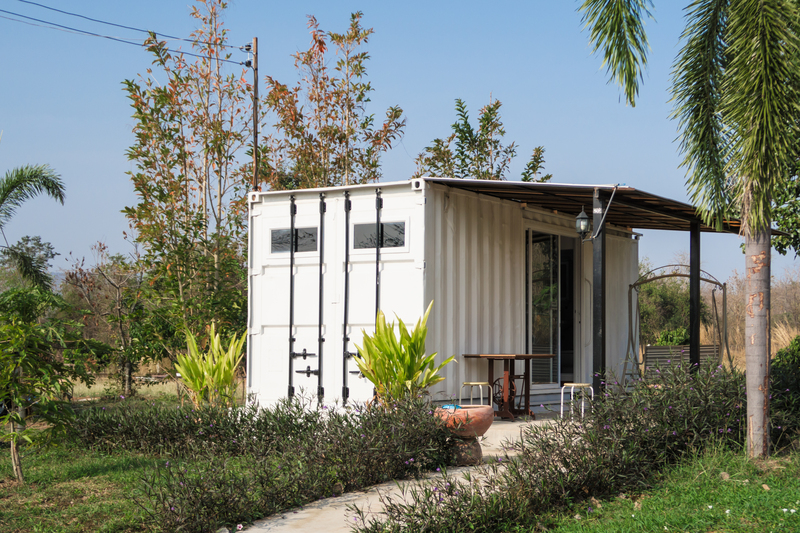Budget-Friendly Approaches to Removing Unwanted Bulky Waste Items
Unwanted bulky waste items can accumulate quickly in homes, offices, and outdoor spaces. From old furniture and broken appliances to large mattresses and garden debris, these items not only take up valuable space but also create safety hazards and diminish the overall appeal of your environment. Many people struggle with finding affordable and effective ways to get rid of large junk. Fortunately, there are several budget-friendly methods for removing bulky waste items without breaking the bank or harming the environment.
Understanding Bulky Waste and Its Challenges
Bulky waste refers to large items that are not easily disposed of with regular household garbage due to their size, weight, or special handling requirements. Examples include:
- Old furniture (sofas, beds, wardrobes)
- Large electrical appliances (fridges, washing machines)
- Mattresses and bed frames
- Rugs and carpets
- Fitness equipment
- Yard debris (branches, tree trunks, bushes)
Proper removal of these items is essential for maintaining cleanliness, optimizing space, and protecting the environment. However, the main challenges include high costs, transportation issues, lack of time, and limited awareness of convenient disposal options. Let's dive into cost-effective bulky waste removal strategies that everyone can apply.

Top Budget-Friendly Ways to Remove Bulky Waste Items
1. Donate Usable Items to Charity
If your unwanted items are still in good condition, donating them to local charities or non-profit organizations is a win-win solution. Not only do you declutter your space for free, but you also give your belongings a second life and support those in need.
- Contact local donation centers like Goodwill, Salvation Army, or shelters.
- Many organizations offer free pick-up services for large donations.
- Be honest about the condition; only donate clean and functional items.
- Some charities accept mattresses, furniture, or electronics for refurbishment or recycling.
Tip: Donating can sometimes provide a tax deduction; keep receipts for your records.
2. Sell Items or Offer Them for Free Online
Online platforms provide a vast marketplace for getting rid of bulky waste at minimal or zero cost, and you might even make some money!
- List items on resale apps (Facebook Marketplace, Craigslist, OfferUp, Letgo).
- Use the "curb alert" or "free" sections to encourage self-pickup by buyers.
- Take clear photos and provide honest descriptions to attract interested users.
- Arrange safe, contactless pickups to minimize hassles.
Giving away items for free is often the fastest way to clear space if you don't want to negotiate prices or wait.
3. Utilize Municipal Bulky Waste Collection Services
Most cities and towns offer bulky item collection services as part of their waste management programs. These services are often:
- Free or low-cost for residents (check local policies)
- Scheduled periodically (monthly, quarterly, or on special request)
- Subject to item restrictions and maximum weight or volume limits
Visit your municipality's website or contact their sanitation department for details about:
- Pickup schedules and eligibility
- Accepted and banned items
- Preparation guidelines (disassembly, tagging, curb placement)
Municipal services are a budget-friendly solution ideal for basic residential or small office cleanouts.
4. Take Advantage of Community Clean-Up Events
Throughout the year, many neighborhoods or local authorities organize clean-up days or waste amnesty events where residents can dispose of large items at little or no cost.
- Events typically occur before spring, fall, or after holidays.
- They may accept electronics, mattresses, appliances, and yard waste.
- Information is usually available via community boards or online forums.
- Participation might require proof of residency or advance registration.
These events are excellent for collective bulky waste disposal at minimal expense and promote community engagement.
5. Break Down Items for Regular Trash Collection
For DIY-savvy homeowners, one of the most budget-conscious methods is dismantling bulky items so they fit into regular garbage or recycling bins.
- Use saws, hammers, or screwdrivers to disassemble furniture, shelving, or appliances.
- Separate recyclable parts like metal, plastic, or wood if possible.
- Adhere to local waste segregation and disposal rules.
- Fill household waste bins gradually over several collection days.
Warning: Take safety precautions--wear gloves, safety goggles, and mask to avoid injury or dust inhalation.
6. Recycle Your Bulky Items Responsibly
Many large waste items contain components that can harm the environment if landfilled but are valuable if recycled. Budget-conscious recycling options include:
- Finding local recycling centers for mattresses, appliances, and metals
- Attending e-waste drives for electronics like TVs, printers, and computers
- Dropping off scrap metal at scrap yards, which may even pay for your materials
- Consulting manufacturer take-back programs (especially for electronics or old mattresses)
Always research the nearest recycling drop-off location and their accepted materials before transporting your items.
7. Enlist Low-Cost Junk Removal Services
If you have multiple heavy items or lack the means to transport bulky waste, there are budget-friendly junk hauling companies that provide affordable pick-up options, especially for:
- Elderly, busy, or physically limited individuals
- Large moves, renovations, or estate cleanouts
- Shared property or commercial waste removal
To save money:
- Get free estimates from multiple local companies
- Inquire about discounts for seniors, veterans, or repeat customers
- Ask about smaller service packages--some providers remove single items for a flat fee
- Consider partnering with neighbors to split costs on a joint removal project
Carefully compare reviews, insurance coverage, and recycling policies before hiring any service.
8. Rent a Small Dumpster or Skip Bin
For larger projects (garage cleanouts, renovations, yard work), renting a mini dumpster or skip bin can be surprisingly cost-effective when shared among multiple households.
- Choose the smallest available bin for your needs to minimize cost
- Coordinate with neighbors to maximize bin usage and share rental fees
- Follow guidelines on accepted items to avoid extra charges
Dumpster rental companies often provide short-term delivery and pick-up services, streamlining the process.
Tips for Reducing Bulky Waste in the Future
Prevention is always more cost-effective than removal. By making conscious choices, you can minimize the accumulation of unwanted bulky junk and save money in the long run.
Smart Shopping
- Opt for multi-purpose, durable, and modular furniture
- Buy high-quality appliances with longer lifespans
- Avoid impulse purchases of large or trendy items
Maintenance and Repair
- Regularly clean and maintain furniture and appliances
- Repair rather than discard items when possible
- Learn simple upholstery, carpentry, or DIY repair techniques
Reuse and Upcycle
- Transform old items into new storage solutions, art, or garden features
- Repurpose wood, fabric, or metal scraps for creative projects
The Environmental and Social Benefits of Responsible Waste Removal
Choosing affordable options for removing bulky waste isn't just about saving money. It also:
- Reduces landfill overflow and environmental pollution
- Conserves resources through recycling and reuse
- Supports local charities and low-income families
- Fosters a cleaner, safer, and more attractive community
By being proactive and informed, you contribute to a more sustainable future while efficiently managing unwanted household or office items.

Frequently Asked Questions About Bulky Waste Disposal
- Q: Can I put bulky items out with my regular trash?
- A: Most regular trash collection services will not accept large items. Always confirm with your local waste provider before placing them on the curb.
- Q: How do I dispose of broken appliances affordably?
- A: Check for municipal appliance pick-up programs, scrap metal recyclers, or manufacturer take-back schemes, allowing for almost-free or even profitable disposal.
- Q: What should I do with unusable or unsafe items?
- A: Items containing hazardous materials (refrigerants, batteries, chemicals) must be disposed of at approved hazardous waste sites to avoid health and legal risks.
Conclusion: Affordable Bulky Waste Removal is Within Reach
Removing unwanted bulky waste items doesn't have to be expensive or overwhelming. By understanding your options--from charitable donation and online reselling to municipal programs and creative DIY solutions--you can save money while supporting sustainability. Remember, prevention, regular decluttering, and community participation go a long way in keeping your space tidy and stress-free. The next time you need to dispose of bulky junk, turn to these budget-friendly, eco-conscious strategies for the best results!